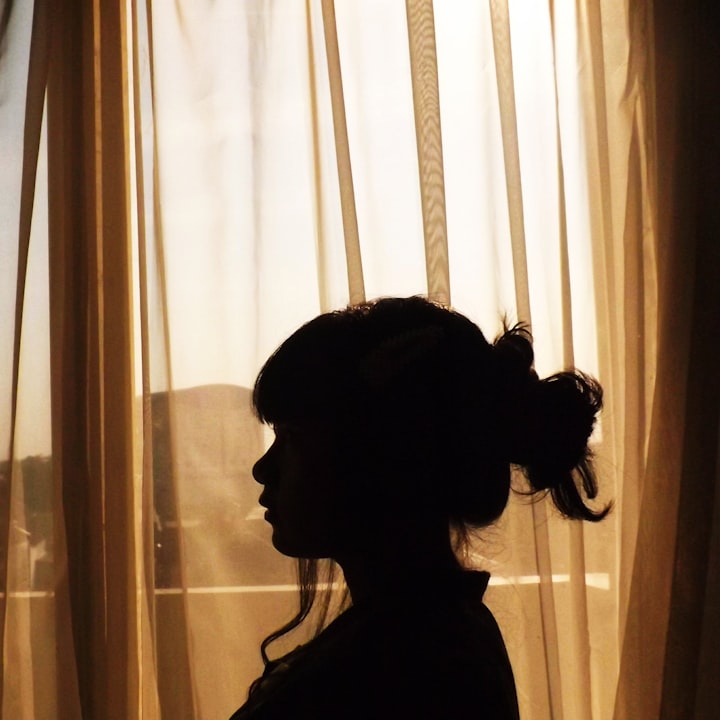'Christine': A Unique Film About Personal Crisis
...And My Suggestions Regarding Depression

SPOILER ALERT: I will reveal some key details about the movie. That being said, there's a chance you'll already know some of them upfront, as they are pretty well known. Still, you have fair warning.
Antonio Campos's Christine is about the psychological collapse of Christine Chubbuck, a TV reporter for a Sarasota, Florida station. Chubbuck was a real reporter who shot herself in the head during a live broadcast in 1974. Right before doing so she proclaimed: "In keeping with Channel 40's policy of bringing you the latest in 'blood and guts' and in living color, you are going to see another first— attempted suicide."
There is at least one disturbing fake video of the suicide (which you may or may not wish to watch, depending on how morbid your curiosity is), However, if you watch Christine, you'll find a film that's not nearly as morbid as that, and which actually does a great deal to examine her personality, hangups and specific factors contributing to her depression.
You can watch a scene here.
Why The Movie is Great
Rebecca Hall does an amazing job portraying Ms. Chubbuck, humanizing her every step of the way and never making a mockery of her personal crisis (which, honestly, might be a difficult thing to achieve, as sometimes a camera might lend itself to cruelty). No doubt, this understanding portrayal is also helped by Craig Shilowich's screenplay. Craig Shilowich maintains that Christine was partly inspired by his own battle with depression.
In fact, Christine is certainly among the best depictions of a depressed person one could find. In most cases, depressed people don't merely have "something wrong with them." Quite often their lives are out of control, and they constantly feel like everything they do is wrong or being undermined. After a while, they might see everything as futile and never feel like they've achieved anything.
In the case of Christine, much of that involved her professional life, as well as her lack of a love life. Also, if you consider her suicide itself, there's a hint of a dark sense of humor, as if she recognized her own life as a sick joke, tied in with the sensationalist news stories she was expected to prioritize as a TV news personality.
Basically, there are many fascinating layers to this story, and Christine does a hell of a job of examining some of her tragic life, and it implores us to also wonder what might have been. Had certain aspects of her life been slightly better, would she have made the same startling decision? Christine also stars Michael C. Hall, Tracy Letts, Maria Dizzia, J. Smith-Cameron, and John Cullum.
Can Anything Be Learned From Watching 'Christine'?
It's possible that one shouldn't want a movie to influence them too much. After all, a strong mind should differentiate fact from fiction, and the inability to do so is obviously potentially dangerous. However, when a movie is based on a true story, those standards can't help but become a little murkier. Still, it's not easy to draw a clear lesson from this movie, or from the character of Christine Chubbuck herself.
Maybe that's actually the lesson, though. When people are at an emotional distance, isolated and under heavy stress, some very dark things can happen. Unfortunately, people in such situations don't know how to ask for help, and even feel they don't deserve it. It can also be very embarrassing to come forward in such a way, and could even jeopardize one's career by appearing too emotionally weak to cope with reality.
At the same time, if you are around such people, you probably won't want to get involved. Maybe you think they need space, or they just aren't treating you right (as happens during a few scenes in Christine). This is why depressive episodes are so tricky to address. It really can be like walking a tightrope, because you never know exactly what to do or say, or what NOT to do and say (which can be just as important).
Perhaps the best question is: How can we convince people to be less sensitive without becoming insensitive ourselves? After all, sensitivity is a part of who we are. It may seem like a passing thing, like the weather, but even the weather can have devastating consequences. Also, contrary to what some people believe, prescription meds actually can help sometimes. Other times, not so much.
I will not pretend to be a foremost expert on the inner workings of the average depressed person's brain. However, I can say from experience that, for obvious reasons, people tend to be less depressed when they're not under economic stress. If you watch Christine, you'll get a sense that she could have survived had a few more details of her life worked out to her advantage.
My Suggestions For Addressing Depression/Suicidal Thoughts: Part 1 - Philosophical Approach
Christine Chubbuck's suicide was probably not inevitable, especially not in such a scandalous manner. However, what is done is done. That is why, if we have a conscience, we definitely should be a little mindful of what we do or say. Hell, couldn't some life circumstances drive you over the edge? At the same time, people who have depression need to be aware of their own patterned thinking and hopefully take control of it in a positive way.
Personally, I recommend crafting a philosophy. Years ago I tried to approach my mind from a largely philosophical perspective. For example, I do my damnedest to control my emotions (though it's a struggle). I have also decided to simply rule out suicide (or, of course, murder) as an option. Now, this probably sounds naïve in the context of crippling depression, but I think it helps keep me in check at least. A philosophical approach might help others, too.
I also suggest low-stress creative work or activities during which a person won't be too self-critical. In other words, they should try to find something fun to do. Failing that, a person can at least turn to routine or simply stop overthinking and analyzing everything they do, or everything that happens to them. Granted, the routine should be at least somewhat flexible and not function like a mental prison, but some vague semblance of order is probably better than none at all.
Part Two - Being Alone is Okay
Finally, Christine in the movie is depressed largely due to her feeling alone. This is a huge challenge, because there's so much pressure to be with someone. However, a person should always be able to feel comfortable with solitude.
This gets back to the philosophical angle. If you are dependent on someone else, or the perception that you need a relationship, it can very easily become a trap. While relationships can obviously be a good thing, make sure you are comfortable with yourself as a foundation. Maybe you shouldn't be alone, and maybe you aren't in that condition. However, never feel like you are a lesser person just by being alone. If you buy into that, you are ultimately victimizing yourself, and setting yourself down a potentially dangerous path.
Obviously, these suggestions are far from perfect, and not every depressed person will take such advice. Ultimately, a person has to want to save his or her self, especially if no one springs to their aid. As horrible as it may sound, not every tragedy can be prevented. Still, just remember that life tends to have options, so don't let your emotions become your vision. Let them guide you, not blind you.
About the Creator
Wade Wainio
Wade Wainio writes stuff for Show Snob, Undead Walking, Pophorror.com, Vents Magazine and Haunted MTL. He is also an artist, musician and college radio DJ for WMTU 91.9 FM Houghton.






Comments
There are no comments for this story
Be the first to respond and start the conversation.